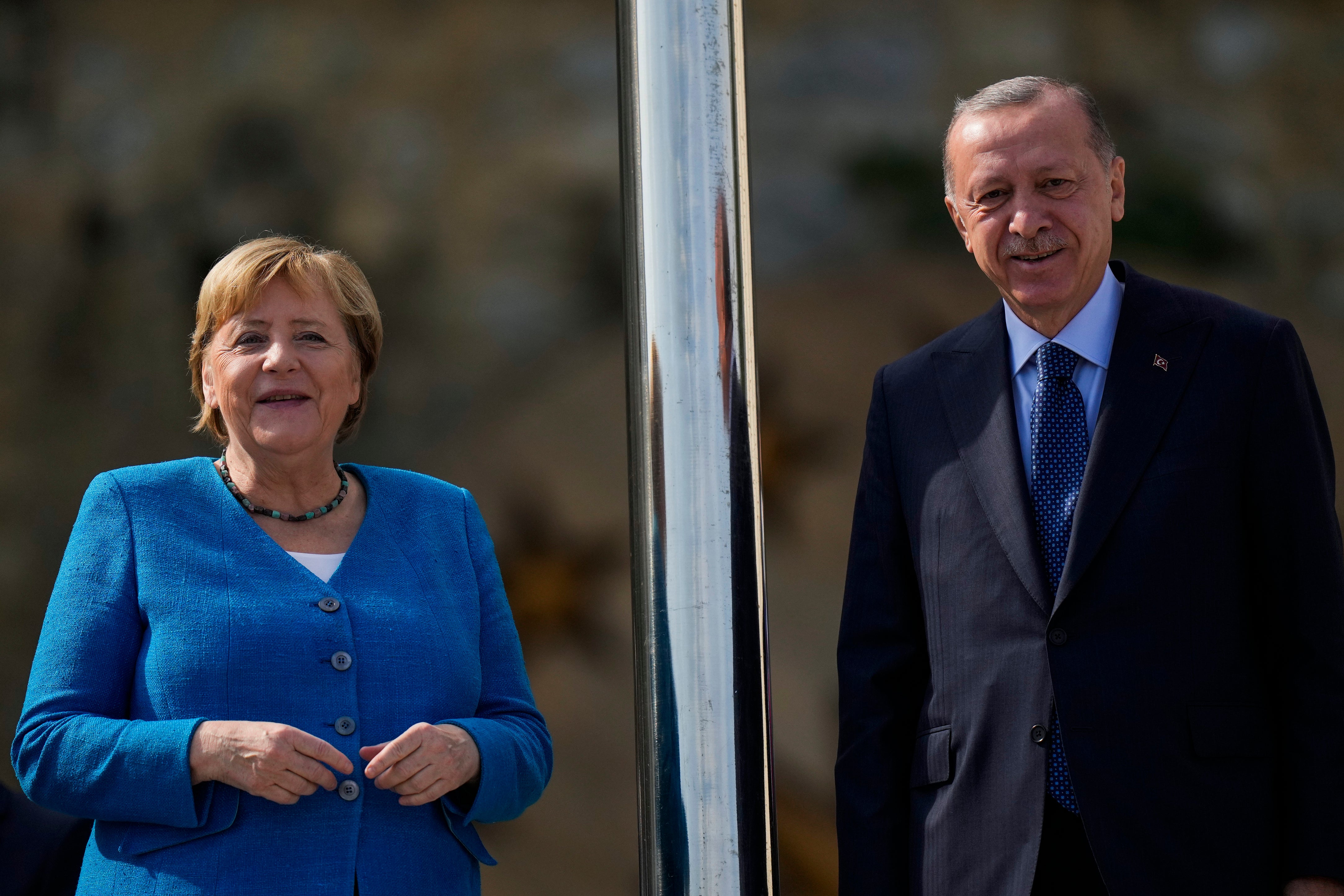Turkey's Erdogan bids farewell to Merkel after 16 years
Two of Europe’s longest-serving leaders have paid tribute to one another as Turkish president Recep Tayyip Erdogan hosted German chancellor Angela Merkel’s final visit to Turkey for farewell talks

Your support helps us to tell the story
From reproductive rights to climate change to Big Tech, The Independent is on the ground when the story is developing. Whether it's investigating the financials of Elon Musk's pro-Trump PAC or producing our latest documentary, 'The A Word', which shines a light on the American women fighting for reproductive rights, we know how important it is to parse out the facts from the messaging.
At such a critical moment in US history, we need reporters on the ground. Your donation allows us to keep sending journalists to speak to both sides of the story.
The Independent is trusted by Americans across the entire political spectrum. And unlike many other quality news outlets, we choose not to lock Americans out of our reporting and analysis with paywalls. We believe quality journalism should be available to everyone, paid for by those who can afford it.
Your support makes all the difference.Angela Merkel’s final visit to Turkey as German chancellor on Saturday saw two of Europe’s longest-serving leaders pay tribute to one another as Turkish president Recep Tayyip Erdogan hosted her for farewell talks overlooking the Bosporus.
Mr Erdogan had been in office for more than two years when Merkel came to power in 2005. Since then, they have built a relationship based on pragmatism that has weathered several crises.
“I hope that our successful work with Ms Merkel will continue in the same way under the new government,” Mr Erdogan said at an Istanbul news conference.
The leaders discussed Turkey’s relations with Germany and the EU, as well as Syria, Libya and the eastern Mediterranean, where Ankara’s interests have collided with Europe’s.
But Ms Merkel has often adopted a conciliatory approach to Turkey, emphasising the common interests of Turkey and the west.
After admitting hundreds of thousands of refugees to Germany in 2015, she stressed Turkey’s role in preventing a repeat of such large-scale migration to Europe and helped engineer a deal for Turkey to stem the flow of people seeking to cross the Aegean Sea.
The topic of migration dominated the leaders’ comments on Saturday when Ms Merkel promised that EU support for Turkey, which hosts 4 million refugees, would continue and said the incoming administration in Berlin will value ties with Turkey.
Germany's political parties are holding talks on a new coalition government after an election in September, and Ms Merkel is staying on in a caretaker role until that government is in place.
“We always have common interests, and that’s how the next federal government will see it,” she said.
Mr Erdogan thanked his guest for her “positive contributions” in Turkey’s long-running bid for EU membership and her support for the 3 million-strong Turkish community in Germany.
Relations with Turkey proved one of the toughest areas for Ms Merkel during her 16 years in office, especially as Mr Erdogan ramped up attacks on European leaders while overseeing growing authoritarianism at home.
Ankara’s foreign policy also saw Ms Merkel’s government back limited EU sanctions on Turkey and restrictions on arms sales.
Germany has voiced concerns about the influence of Turkish institutions within its borders and banned Turkish politicians from campaigning in 2017, leading Mr Erdogan to compare German officials to Nazis.
There are concerns in Ankara that the next German government will be less tolerant of such differences.